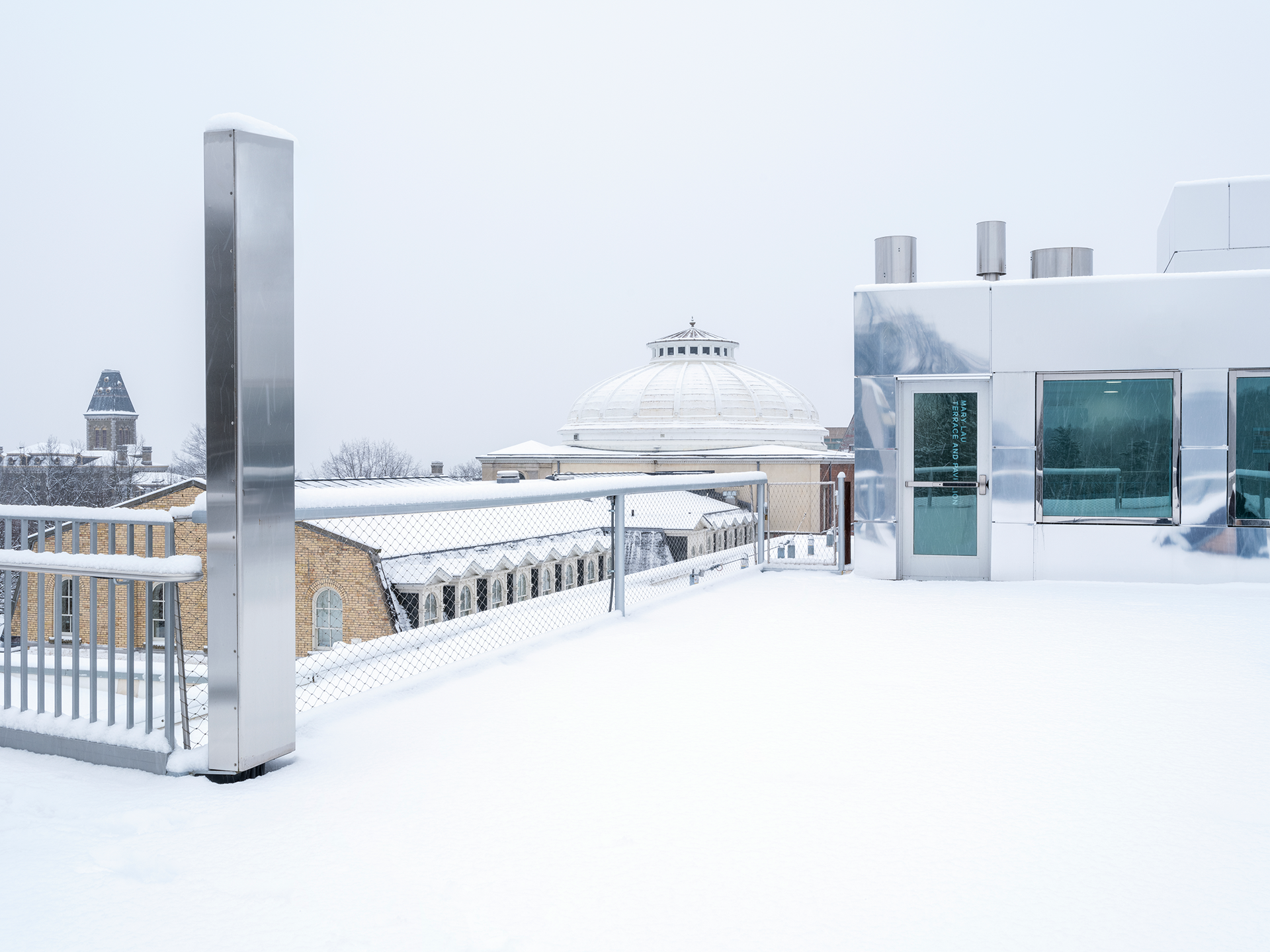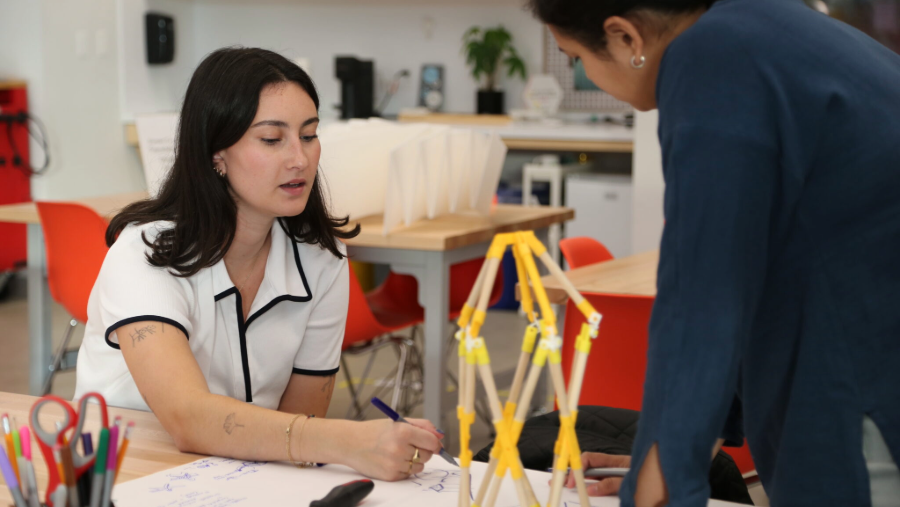As College of Architecture, Art, and Planning (AAP) students, faculty, and staff return to campus to begin the spring semester, there is a wealth of activity to explore. So pull out your calendar and read on to prepare for the weeks ahead…
Special exhibitions this spring will highlight the work of students and faculty across departments. The Cornell Art Faculty 2024 exhibition opens on February 2 at the Herbert F. Johnson Museum of Art. This semester-long survey aims to celebrate the relationship between art education and creative practice and will feature the work of 18 participating department faculty members. Contributing to the university’s 2023–24 theme of “Freedom of Expression,” the Cornell Council for the Arts and AAP have partnered to showcase 15 projects by students and faculty exploring the importance of artistic free expression which will be on view throughout March in the John Hartell and Bibliowicz Family galleries. These shows come on the heels of the final week of Creating Justice: The Worlds We Make, an exhibition featuring highlights from the inaugural class of the same name offered to all first-year AAP students last fall. This exhibition closes on February 1.
Mabel O. Wilson makes her first full visit to Cornell as A.D. White Professor-at-Large in early March. An award-winning scholar, architect, artist, and thinker, Wilson makes visible and legible the ways that anti-Black racism shapes the built environment along with the ways that Blackness creates spaces of imagination, refusal, and desire. Planned on-campus activities will include a university-wide keynote address, student engagement activities, class visits, and meetings with colleagues in multiple departments.
The college also looks forward to a search for a Strauch Early Career Fellow this spring. This endowed position was recently created by a generous gift from longtime college supporters Hans Strauch (B.Arch. ’80) and Roger Strauch (’78) on behalf of The Mosse Foundation. This first-of-its-kind fellowship at AAP will focus on the recruitment of early-career scholars to advance diverse academic talent within the college’s disciplines. Hans and Roger Strauch also provided funding for the pilot Broadening Participation Program and the Strauch Fellowships, currently held by Sydney Maubert in Architecture and Zakhary Mallett in City and Regional Planning, who both conclude their appointments this year.
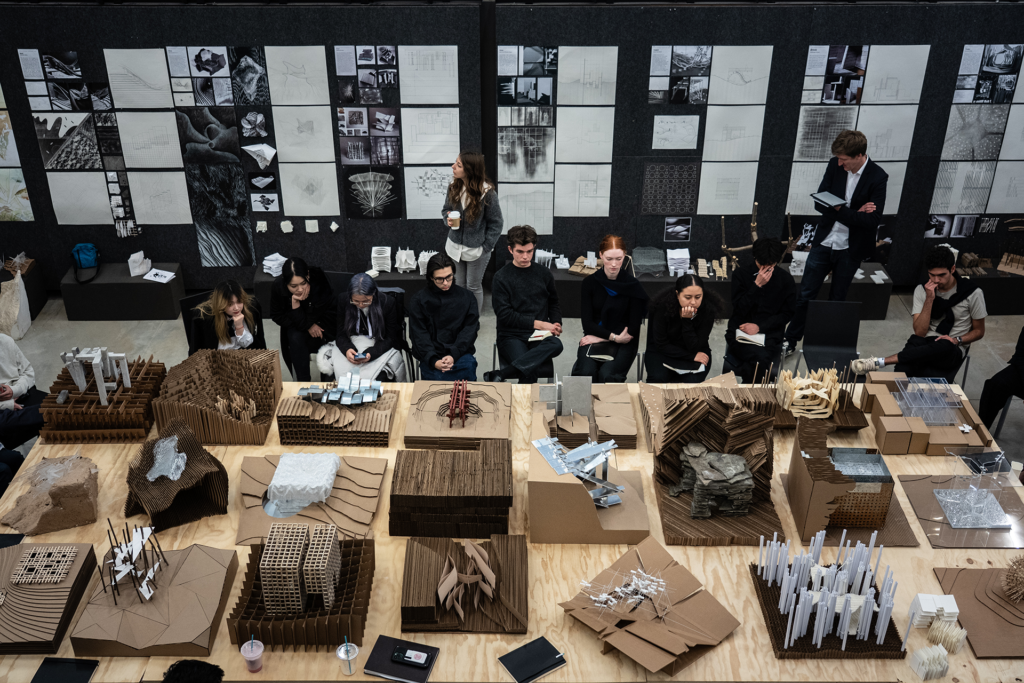
The Department of Architecture will welcome notable speakers this semester. Gensler Visiting Critic Roisin Heneghan will give a talk on January 25, Nader Tehrani will speak as part of the Peter Eisenman Lecture Series endowed by Elise Jaffe + Jeffrey Brown on February 6, and the Edgar Tafel Lecture will be delivered by Mariam Kamara on March 21. “Labor Un:Imagined,” this semester’s Preston H. Thomas Memorial Symposium on March 7 and 8, is organized by Assistant Professor María González Pendás and brings together historians and other experts to question the archives, categories, and methods that the field has deployed to address, and most often to eclipse, building labor and building workers from architectural histories and teaching. Also in March, “Writing Land into Architectural Histories,” this year’s symposium organized by doctoral students in the History of Architecture and Urbanism Society, invites participants to rethink ways of utilizing land as a method for telling transnational and transimperial histories of architecture.
Learn more about all upcoming AAP lectures and exhibitions.
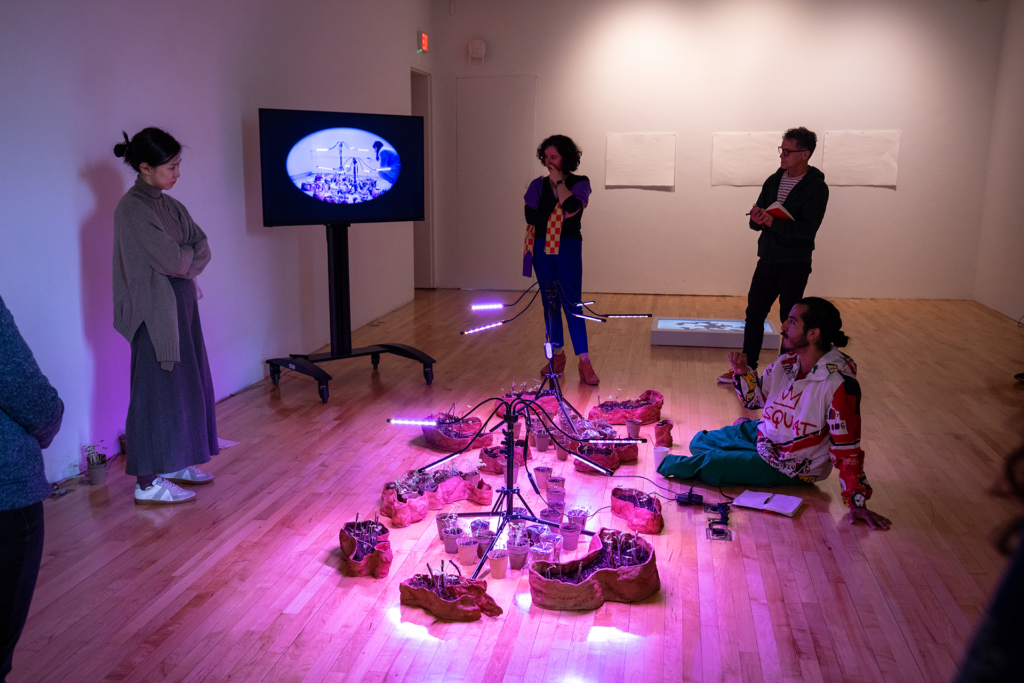
The Department of Art will host prolific artist Glenn Ligon for a public lecture and reception on March 5 as part of the John A. Cooper Visiting Artist Lecture Series. Artist Catherine Haggarty will serve as the spring 2024 Teiger Mentor in the Arts, offering art students her professional insights and support through teaching activity and studio visits throughout the semester in addition to a public lecture on March 14. In collaboration with Cornell’s Department of Performing and Media Arts, Art Professor Keith Obadike and Performing and Media Arts Professor Mendi Obadike will co-teach Sound, Music, Public Space, the spring 2024 Urban Justice Lab offered as part of the Andrew W. Mellon Foundation Collaborative Studies in Architecture, Urbanism, and the Humanities series. Also this semester, M.F.A. cohorts in both Image Text and Creative Visual Arts will each travel to Mexico City where they will visit artist studios and other venues around the cultural capital.
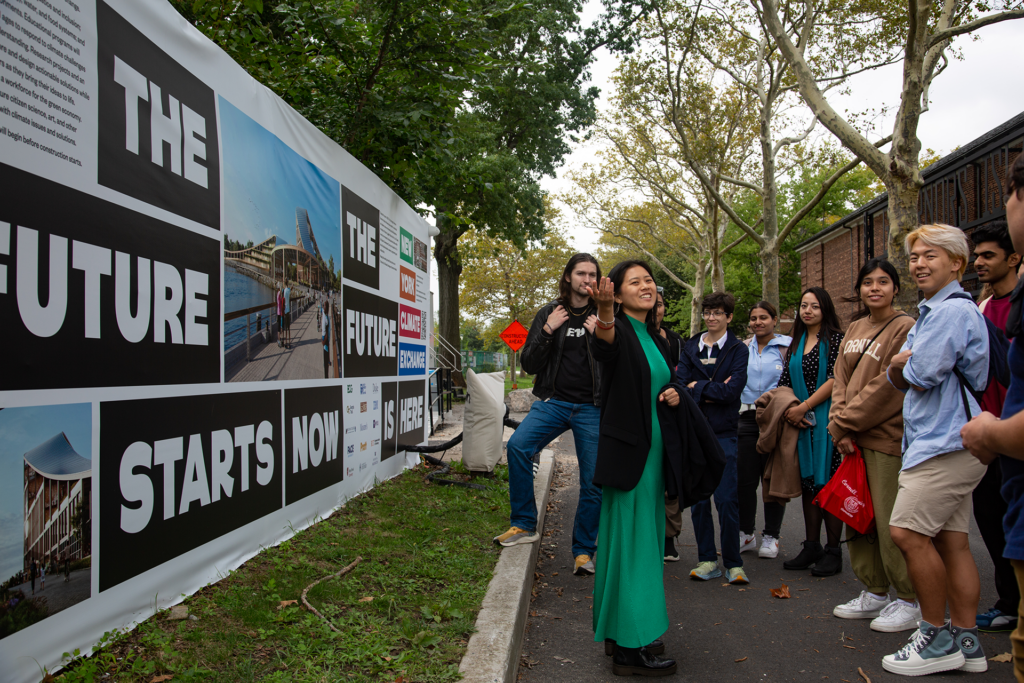
The Department of City and Regional Planning will launch a new series of workshops this spring. This suite of classes offers students a rich array of on-the-ground practice in critical city and regional issues, including questions of public space and urban design in Puerto Rico with on-site fieldwork; a workshop on affordable housing law, policy, and practice; and a collaboration with the Finger Lakes Land Trust that will produce a natural resources inventory of the western Finger Lakes region. A rotating series of displays throughout the semester in the CRP exhibition hallway will highlight recent student work, and the department looks forward to welcoming leading researchers and practitioners to their colloquium series, including Andrew Rumbach and Sara McTarnaghan on designing impact-oriented research; Prentiss Danzler on upward mobility for Atlanta’s Black public housing families; Katie Wells and Kafui Attoh on the rise of Uber and the fall of the city; and Geoff Boeing on generalizability in urban science.
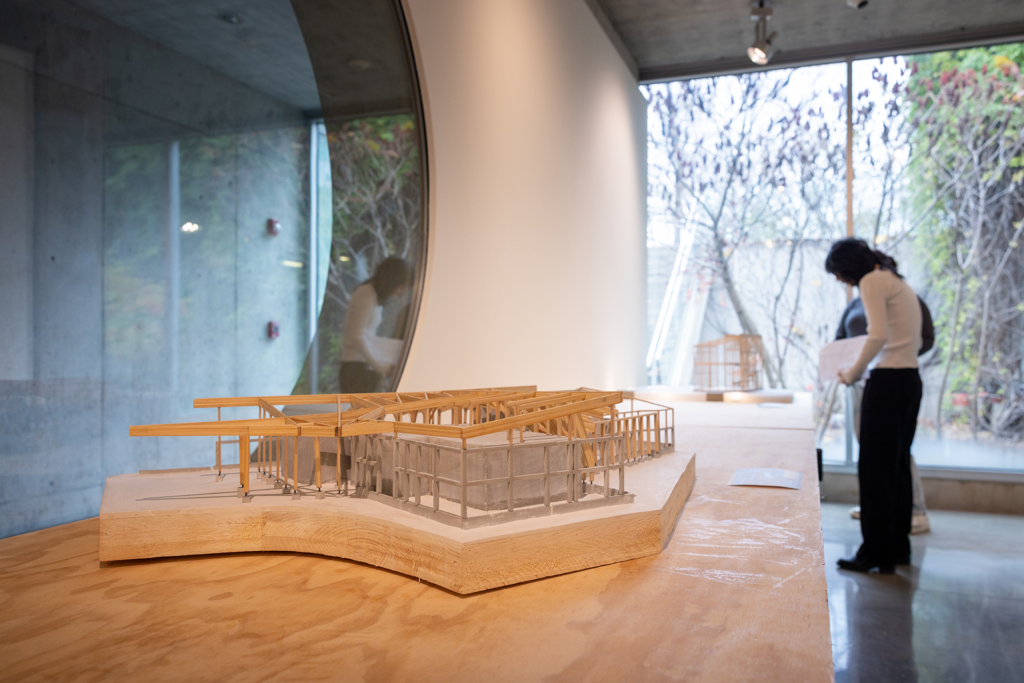
The Paul Rubacha Department of Real Estate is working on new initiatives to expand the Baker M.P.S. program in Real Estate. The department is currently advancing a “+1” pathway that will allow strong students to complete the two-year M.P.S. program in just one year beyond their undergraduate degree. This option is on track to be available to all Cornell undergraduates and is a particularly good match for students in urban studies, architecture, hotel administration, economics, business, civil engineering, finance, and public policy. A second initiative that received university approval earlier this month is a change to the program’s CIP code to a classification that more accurately reflects its analytical nature and which carries a STEM designation. International graduates from the program may now be able to remain in the United States for up to three years of optional practical training following completion of the degree instead of the more traditional one-year limit. The semester’s Distinguished Speaker Series will host a slate of commercial real estate leaders, including Rich Gomel, Partner and Chief Investment Officer at Two Sigma Real Estate; Sharon Yavo Ayalon, Cofounder and CEO at UrbanMix; and Penny Ransom, Group Head of Investments at Lendlease.
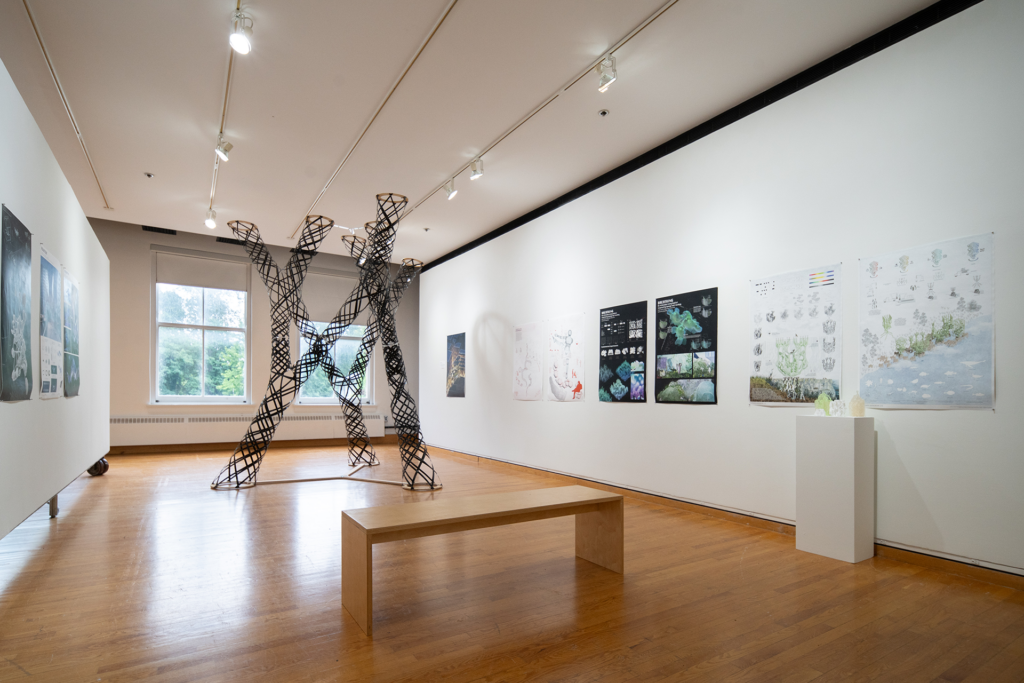
In line with rollout plans, the Department of Design Tech is currently conducting its first admissions cycle for the new M.S. in Design Technology and will welcome its first class in the fall of 2024. The department is also seeking to fill open tenure-track faculty positions as part of a unique radical collaboration hiring initiative at Cornell. After a fall sabbatical that Architecture Professor and Design Tech Department Chair Jenny Sabin spent in Germany along with three M.S. MDC students, promising new collaborations are forming between the Sabin Design Lab and the Department of Design Tech at Cornell and the Cluster of Excellence Integrative Computational Design and Construction for Architecture and the Institute for Lightweight Structures and Conceptual Design at the University of Stuttgart.
This spring, the Cornell Mui Ho Center for Cities will host three workshops in New York City as part of its work on a National Science Foundation planning grant to develop a research center to address urban climate change adaptation (CIVIC-UARC). Organized in collaboration with multiple institutional and civil society partners, the first workshop will focus on climate hazards and risks such as heat exposure, air quality, and flooding and their compounded and cascading impacts in New York City (February 14). The second workshop will focus on household vulnerability to climate change, community capacity for environmental stewardship, and the persistent challenges of university-civil society-community partnerships (February 15). The third workshop will be held at Cornell Tech and focus on developing a “digital twin” that enhances real-time data to model urban environments and aims to use emerging urban technologies to develop equitable climate change adaptation responses (March 15). In April, the center hosts Joseph Kimani, executive director of Slum Dwellers International Kenya. Kimani will work with Architecture Assistant Professor Felix Heisel and academics from the University of Nairobi to develop a cross-college studio course for fall 2024 and contribute to the center’s Just and Equitable Cities initiative. Stay tuned for a call for seed proposals and the launch of the center’s podcast The Good City. Upcoming episodes will explore “wicked” urban problems and the actions that can be taken across scales, from the individual to the collective, to create the cities we all want and need. If you have a suggested topic you’d like to see explored, please email centerforcities@cornell.edu.
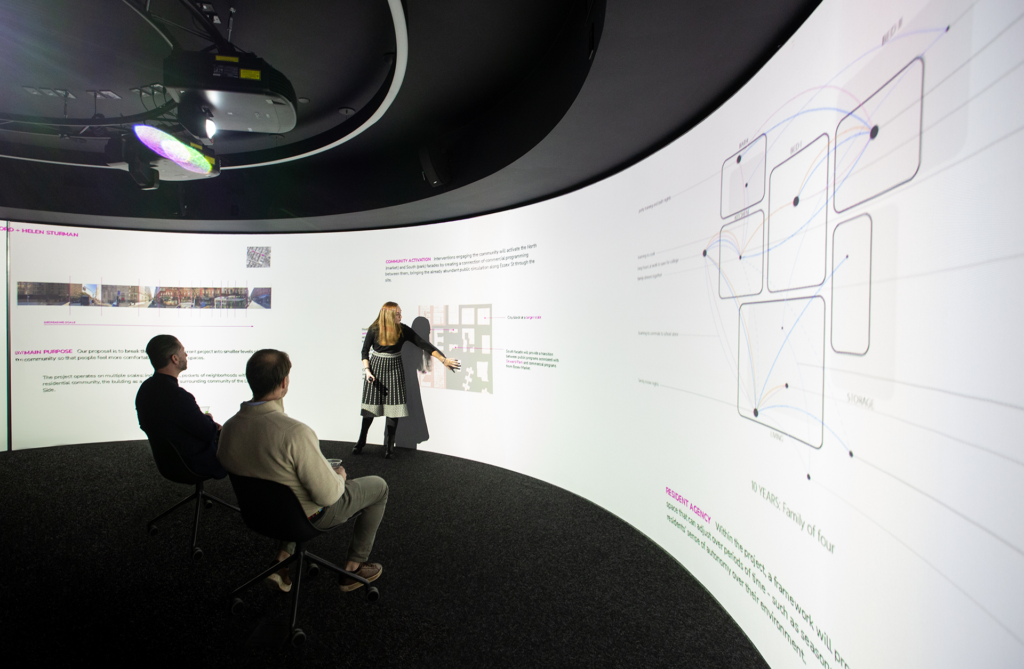
The Gensler Family AAP NYC Center will host students in the B.Arch., M.Arch., and M.S. AUD programs in Lower Manhattan this semester. From artists and data scientists to researchers and a Macarthur Fellow, new visiting faculty include Damon Rich, Jae Shin, Snoweria Zhang, Ruo Jia, and Anthony Titus. Studios will tackle timely topics such as urban development, social justice, and eco-integration. Student activities will include a portfolio review day, neighborhood tours, and office visits with NYC-based firms.
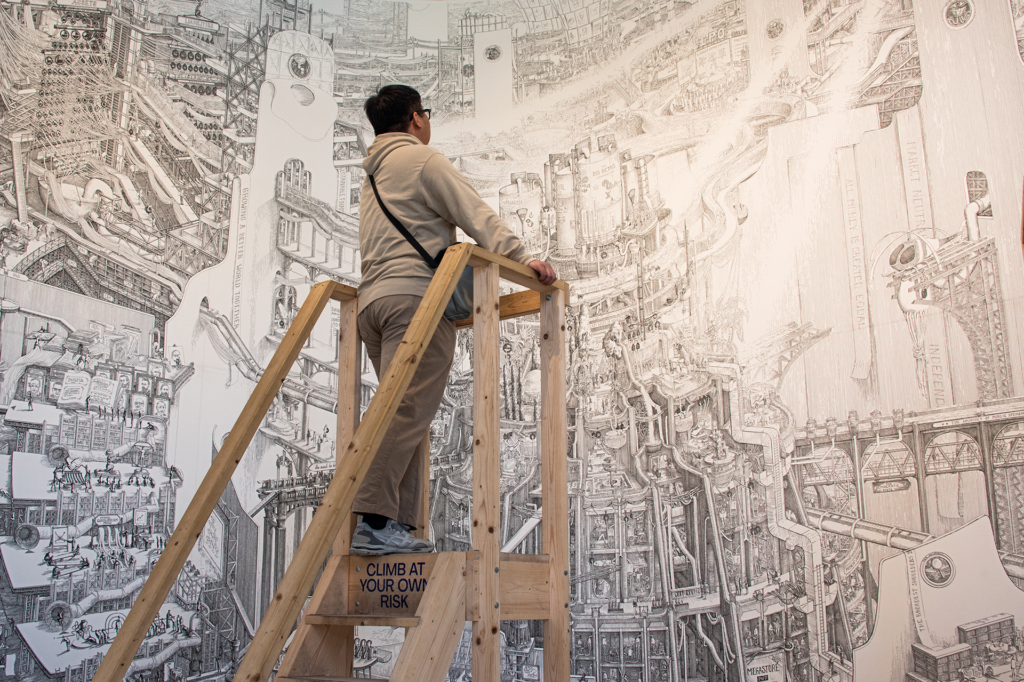
Students studying at Cornell in Rome will have the opportunity to take a deep and multifaceted look at the city through the lens of classic and contemporary film. Art Visiting Lecturer Carolina Ciampaglia is assisting with the organization of a film festival that will serve as a fundamental part of the Italian cinema courses offered this spring. Ithaca-based faculty teaching in Rome this semester include Architecture Assistant Professor of the Practice Martin Miller, who is co-teaching the architecture studio with Giorgio Martocchia of Rome’s modostudio, and CRP Associate Professor Suzanne Lanyi Charles, who is co-teaching with Lecturer Greg Smith. In addition to exploring Rome, students will embark on overnight excursions to Milan, Napoli, and Siena, as well as make shorter trips to Hadrian’s Villa and Palestrina, Villa Farnese in Caprarola, Villa Lante in Bagnaia, and the Park of Monsters in Bomarzo.
Back in Ithaca, the Office of Admissions and Student Services has just moved into a fully renovated space on the lower level of Sibley Hall to serve both current and prospective students. The mixed-use area includes offices and meeting spaces for admissions, advising, career development, DEI activity, academic records, and global study, as well as a lactation space. The AAP Store has also returned to its basement location in Sibley Hall, and vending machines with key materials have been added for student convenience when the store is not open. The Sibley Dome project is in the construction bidding phase, and on the Cornell Tech campus in New York City construction began in October 2023 on the build-out of the Tata Innovation Center’s fourth floor. This space will be the new home of the Gensler Family AAP NYC Center. With sustainability a high priority at AAP, the facilities team will continue to work with students, faculty, and staff this spring to reduce waste by expanding reuse and recycling measures.
